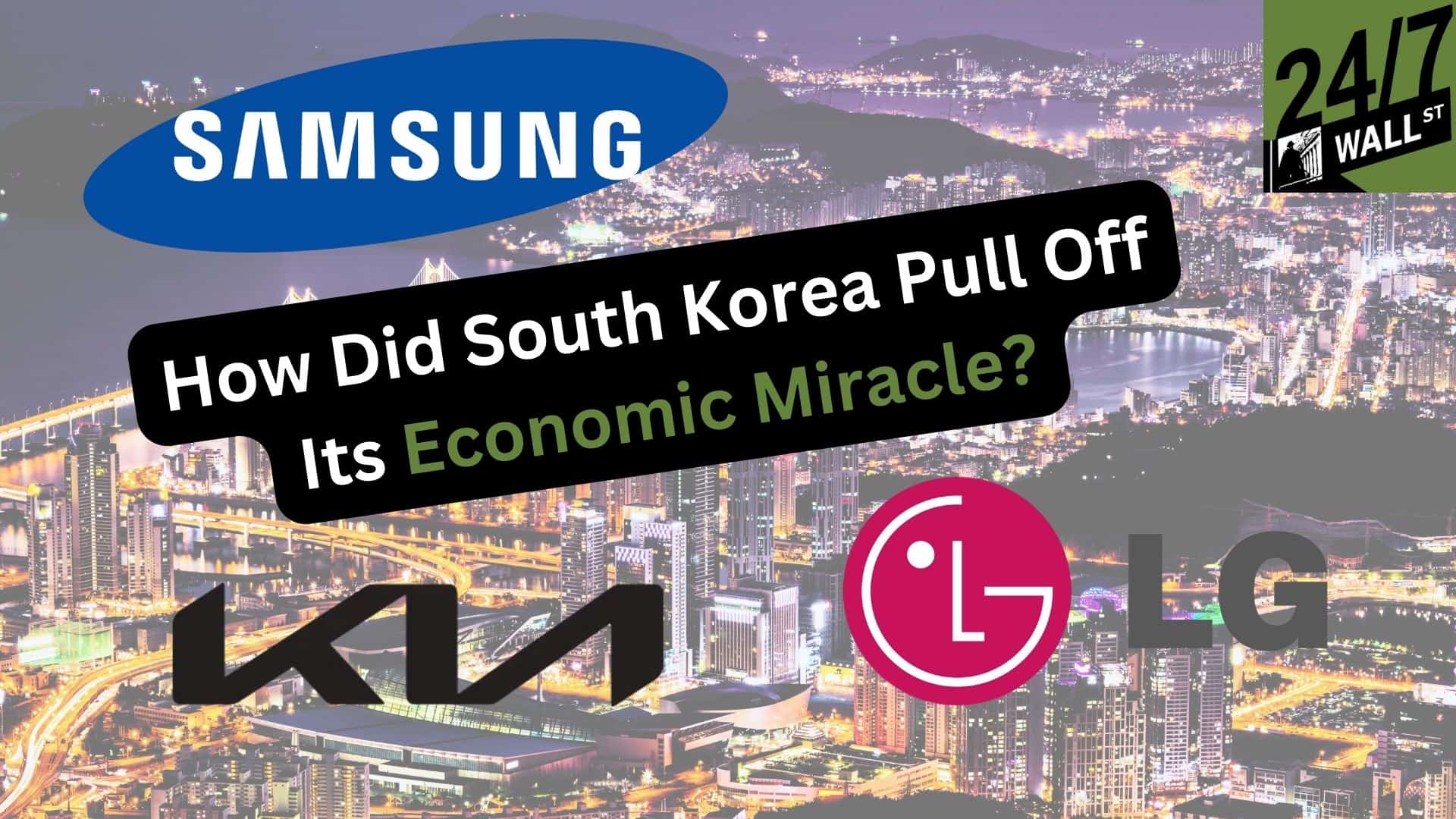
Key Points:
- Korea’s strategic pivot to exports saved the country
- Tech companies like LG and Samsung have made the population wealthy
- The next biggest technology is AI, and there are three stocks that will benefit
Summary:
Austin Smith and Michael Muir discuss the contrasting economic outcomes of North and South Korea since the Korean War armistice in 1953. Initially, North Korea recovered quickly and adopted a centralized economy with five-year plans, but this approach faltered by the late 1960s. In contrast, South Korea focused on an export-driven economy supported by state-backed chaebols, leading to rapid economic growth. Despite being a military dictatorship in the 1960s, South Korea’s strategic pivot allowed it to become an economic powerhouse, culminating in its eventual transition to democracy in the late 1980s. The discussion highlights how South Korea’s outward-looking policies and economic reforms contributed to its transformation into one of the world’s leading economies.
Transcript:
Lot has happened since then, but let’s now shift from military to economy.
So since that armistice, you mentioned first that North Korea was originally considered the more powerful militarily of the two.
And that appears to be the case with the three-day capture of Seoul.
But since then, we’ve had incredibly divergent economic outcomes.
We’ve not necessarily seen a military conflict, although it does seem Korea now has that advantage.
But what has happened to cause that incredible outcome of economies?
Sure. I mean, we should point out that the Korean War is still ongoing by the letter of law.
It was an armistice, not a peace deal.
And that was actually, I don’t want to get too into this, but the Republic of Korea’s president, Syngman Rhee, really did not want a settled peace deal.
He wanted to unify Korea.
So he actually sabotaged peace talks in 1953.
But fortunately for him, North Korea and the United States and basically everybody else was heavily involved, wanted an armistice.
And Rhee was able to extract a lot of concessions from the United States, which provided the building blocks, including a security pact for South Korea as it is today.
So after the war, 1953, North Korea actually recovers reasonably quickly from this conflict.
Now they’re doing that kind of classic five-year plan, highly centralized economy.
And initially, it works pretty well, but kind of sputters out around about the late 1960s.
South Korea goes in a very different direction.
So North Korea, we sort of view as very insular, inward-looking, very isolated.
South Korea is the polar opposite.
But we shouldn’t label South Korea in the 1960s as a liberal democracy because it’s anything but.
It’s actually a military dictatorship caused by the 1961 coup.
But South Korea pivots heavily to an export-focused economy.
And to compete on the global stage, they put a lot of state resources and backing into the so-called chaebol, which is the sort of family-owned mega corporations, many of which are household names today.
So at the cost of labor conditions and civil liberties, South Korea becomes an export powerhouse towards the end of the 1960s.
So that’s when that divergence between North and South Korea really begins to take off, is kind of the late 1960s, early 1970s.
And just to provide a little bit more context, you had talked about the chaebols, you know, just when you said that some of our household names, we mean literally some of the largest and most impressive companies on Earth today, like Samsung, LG, I believe Hyundai and SK Group all came out of that chaebol experiment. Am I correct?
That’s absolutely right. Yeah, they account for, even today, a staggering percentage of the Korean economy, which is something I think we’re going to cover in a bit more detail a little bit later.
But yeah, it just allows a resource-poor… I mean, South Korea’s transformation in the 1960s is remarkable.
It goes from one of the poorest countries in the world to one of the richest in a single generation by pivoting heavily towards an export-focused economy.
And South Korea eventually embraces democracy.
It’s actually a little bit like Taiwan in that sense.
This occurs towards the end of the 1980s.
There’s a lot of pressure internally to democratize, which is also probably one of the reasons why North Korea is so hesitant to allow the free flow of information because they saw what happened south of the 38th parallel.
In 20 Years, I Haven’t Seen A Cash Back Card This Good
After two decades of reviewing financial products I haven’t seen anything like this. Credit card companies are at war, handing out free rewards and benefits to win the best customers.
A good cash back card can be worth thousands of dollars a year in free money, not to mention other perks like travel, insurance, and access to fancy lounges.
Our top pick today pays up to 5% cash back, a $200 bonus on top, and $0 annual fee. Click here to apply before they stop offering rewards this generous.
Flywheel Publishing has partnered with CardRatings for our coverage of credit card products. Flywheel Publishing and CardRatings may receive a commission from card issuers.
Thank you for reading! Have some feedback for us?
Contact the 24/7 Wall St. editorial team.





